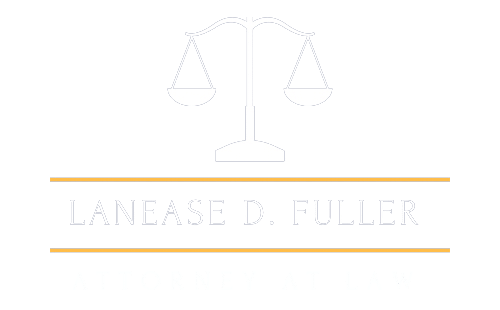Before diving into the common mistakes, it’s essential to grasp what personal injury settlements entail. A personal injury settlement is an agreement reached between the injured party and the responsible party or their insurance company. This agreement is meant to compensate the injured party for losses incurred due to the accident, such as medical expenses, lost wages, and pain and suffering. Understanding the components of such settlements can help you navigate the process more effectively and ensure all your losses are covered.
The Importance of Accurate Valuation
One of the first and most critical steps in pursuing a personal injury claim is accurately valuing your case. A common mistake is underestimating or overestimating the value of your claim. An average personal injury settlement can vary significantly based on factors such as the severity of the injury, medical costs, and the impact on your daily life. Proper valuation requires a detailed assessment of both tangible costs and intangible impacts, such as emotional distress and lifestyle changes resulting from the injury.
Accurate valuation is not just about calculating numbers; it involves understanding the full scope of your injuries and their long-term effects. Consulting with medical professionals and financial experts can provide insights into future costs and losses, ensuring that your settlement demand reflects the true extent of your damages. By taking a comprehensive approach to valuation, you can avoid the pitfall of settling for less than your case is worth.
Factors Affecting Settlement Value
- Medical Expenses: Current and future medical costs must be considered. This includes hospital visits, surgeries, rehabilitation, and any ongoing treatments that may be necessary. The cost of medical care can quickly add up, and failing to account for future medical needs can result in a settlement that falls short of covering these expenses.
- Lost Wages: Time off work and reduced earning capacity can influence settlement amounts. If your injury prevents you from returning to your previous job or limits your ability to work, this loss of income should be factored into your settlement. It’s important to consider not just immediate lost wages but also potential future earnings if your ability to work is permanently affected.
- Pain and Suffering: Non-economic damages that account for emotional distress and physical pain. Calculating these damages can be challenging, as they don’t have a direct monetary value. However, they are a crucial component of your settlement, reflecting the personal impact of the injury on your life.
- Comparative Negligence: If you share some fault in the accident, your settlement may be reduced. Understanding your role in the incident and how it may affect your claim is essential. In some jurisdictions, your compensation may be adjusted based on your percentage of fault, making it vital to have a clear understanding of how negligence is determined.
Common Mistakes in Injury Settlement Claims
Not Seeking Legal Advice
One of the most significant mistakes people make is not consulting with a qualified attorney. Legal professionals like those at Lanease D. Fuller Law have the expertise to guide you through the process and ensure you don’t settle for less than you deserve. Without proper legal advice, you risk accepting a settlement that doesn’t fully cover your needs. An attorney can also help you navigate complex legal terms and provide clarity on your rights and potential outcomes.
In addition to providing guidance, a lawyer can act as a buffer between you and the insurance company, handling communications and negotiations on your behalf. This can prevent you from making statements or decisions that could inadvertently harm your case. By leveraging their experience, you can ensure your case is presented in the best possible light.
Delaying Medical Treatment
Failing to seek immediate medical attention after an injury can severely impact your claim. Insurance companies may argue that your injuries aren’t severe or that they were caused by something other than the accident. It’s crucial to document all medical treatments and follow your doctor’s recommendations to strengthen your case. Prompt medical care not only aids your recovery but also provides a clear record of your injuries and their direct connection to the accident.
Keeping detailed records of all medical visits, treatments, and prescriptions can help substantiate your claim. This documentation can be vital in proving the extent of your injuries and the necessity of ongoing care, thus impacting the settlement amount. A delay in treatment can be used against you, making it essential to prioritize your health and document everything meticulously.
Accepting the First Offer
Insurance companies often make initial settlement offers that are lower than what you might actually deserve. Accepting the first offer without negotiation is a common mistake. It’s important to understand the average lawsuit settlement and negotiate for a fair amount that covers all your losses. The initial offer is typically a starting point, and insurers expect negotiations to occur.
By engaging in negotiations, you can present additional evidence and arguments to support a higher settlement. An experienced attorney can assist in this process, ensuring that you don’t settle prematurely. Remember, patience and persistence can lead to a more favorable outcome, as thorough negotiation often results in a settlement that better reflects the true value of your claim.
Ignoring Future Expenses
Many individuals focus solely on current expenses and overlook potential future costs. If your injuries require long-term care or rehabilitation, these should be factored into your settlement. Failing to account for future expenses can leave you financially vulnerable down the line. Understanding the long-term implications of your injury is crucial for securing adequate compensation.
Future expenses might include ongoing medical treatments, therapy, or modifications to your living environment. By consulting with medical and financial professionals, you can estimate these costs and ensure they are included in your claim. This forward-thinking approach can protect you from unexpected financial burdens and ensure your settlement is comprehensive and sufficient.
Overlooking Emotional Damages
While it’s easier to quantify medical bills and lost wages, emotional and psychological damages are equally important. Typical personal injury settlements should include compensation for pain and suffering, which can significantly impact the overall settlement value. Emotional damages acknowledge the non-tangible effects of an injury, such as anxiety, depression, and decreased quality of life.
Documenting these emotional impacts can strengthen your claim and justify a higher settlement. Consider keeping a journal of your experiences, including any changes in mood, sleep patterns, or daily activities. This personal account can serve as evidence of the emotional toll the injury has taken, helping to convey the full extent of your suffering to the insurance company or court.
Steps to Maximize Your Injury Settlement
Gather Comprehensive Evidence
To build a strong case, gather all relevant evidence, including medical records, accident reports, witness statements, and photographs of the accident scene. This documentation will be invaluable in proving the extent of your injuries and the impact on your life. Comprehensive evidence can demonstrate the severity of the incident and help establish liability, supporting your claim for compensation.
In addition to collecting evidence, organizing it effectively is crucial. Create a timeline of events and maintain a detailed record of all interactions with medical professionals and insurance representatives. This organized approach ensures nothing is overlooked and provides a clear narrative of your case, which can be compelling during settlement negotiations or court proceedings.
Work with an Experienced Attorney
As mentioned earlier, having an experienced attorney can make a significant difference in the outcome of your case. They can provide insights into how much you should sue for personal injury and guide you through the negotiation process to ensure you receive a fair settlement. An attorney’s expertise can help you navigate complex legal procedures and anticipate potential challenges in your case.
A skilled lawyer can leverage their knowledge of similar cases to advocate effectively on your behalf. They understand the tactics used by insurance companies and can counteract them, ensuring your rights are protected. By entrusting your case to a professional, you can focus on your recovery while they handle the legal intricacies.
Be Patient
Settlement negotiations can be lengthy and require patience. Rushing the process may result in a lower settlement than you deserve. Allow your attorney to negotiate on your behalf and trust their expertise in achieving the best possible outcome. Patience allows for a thorough examination of all factors affecting your claim, leading to a more accurate and fair settlement.
During this time, it’s important to stay informed and engaged in the process. Regularly communicate with your attorney to understand the status of your case and any new developments. This involvement can help you make informed decisions and maintain realistic expectations about the timeline and potential outcomes.
Stay Informed About Your Case
Keep yourself informed about the progress of your case and maintain open communication with your attorney. Understanding the legal process and being involved in your case can help you make informed decisions. By staying informed, you can actively participate in strategy discussions and ensure your interests are prioritized.
Regularly review case updates and ask questions when needed to clarify any uncertainties. An informed client is an empowered one, capable of making decisions that align with their goals and expectations. This proactive approach can contribute to a more successful resolution and a settlement that truly reflects your needs.
Choose Lanease D. Fuller Law
Navigating personal injury settlements can be complex, but by avoiding common mistakes and following the right steps, you can maximize your compensation. Remember to seek legal advice from professionals like Lanease D. Fuller Law, document all aspects of your case thoroughly, and remain patient throughout the negotiation process. By doing so, you’ll be better equipped to secure a fair and just settlement that meets your needs.
Understanding the typical personal injury settlements and knowing how to avoid common pitfalls can significantly impact the outcome of your case. Whether you’re dealing with an average injury settlement or a more complex case, being informed and prepared is key to achieving a favorable result. By taking a strategic approach and leveraging expert guidance, you can navigate the settlement process with confidence and secure the compensation you deserve.
Lanease D. Fuller Law
4615 S. Frwy St. 820
Houston, TX 77051
713-439-7400
View our Google Listing


